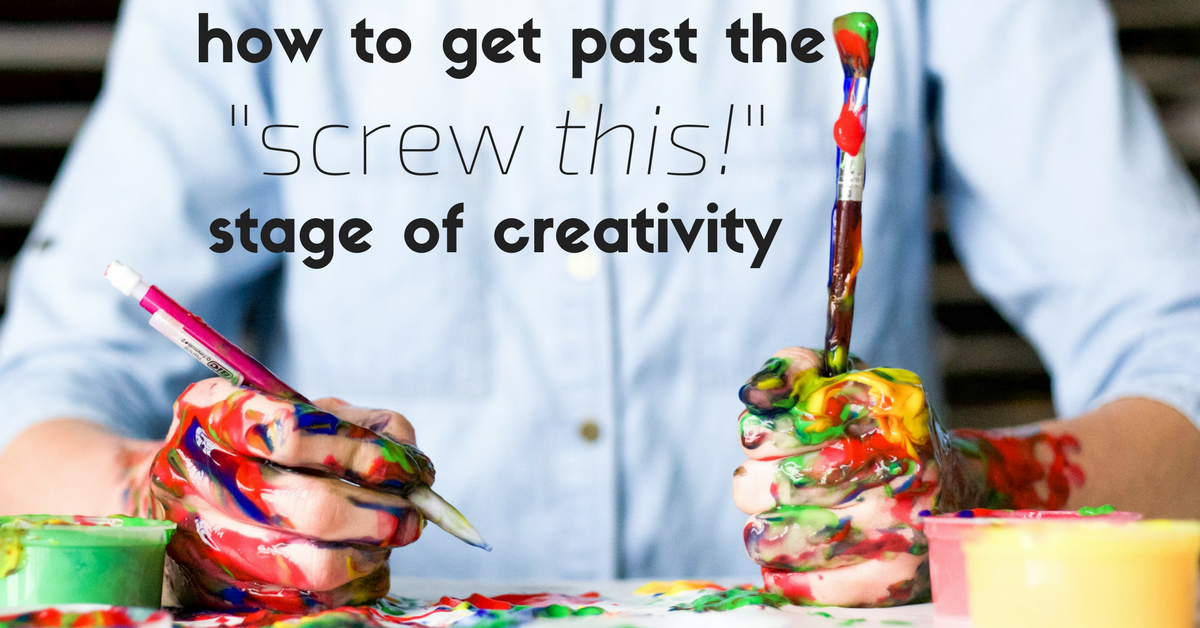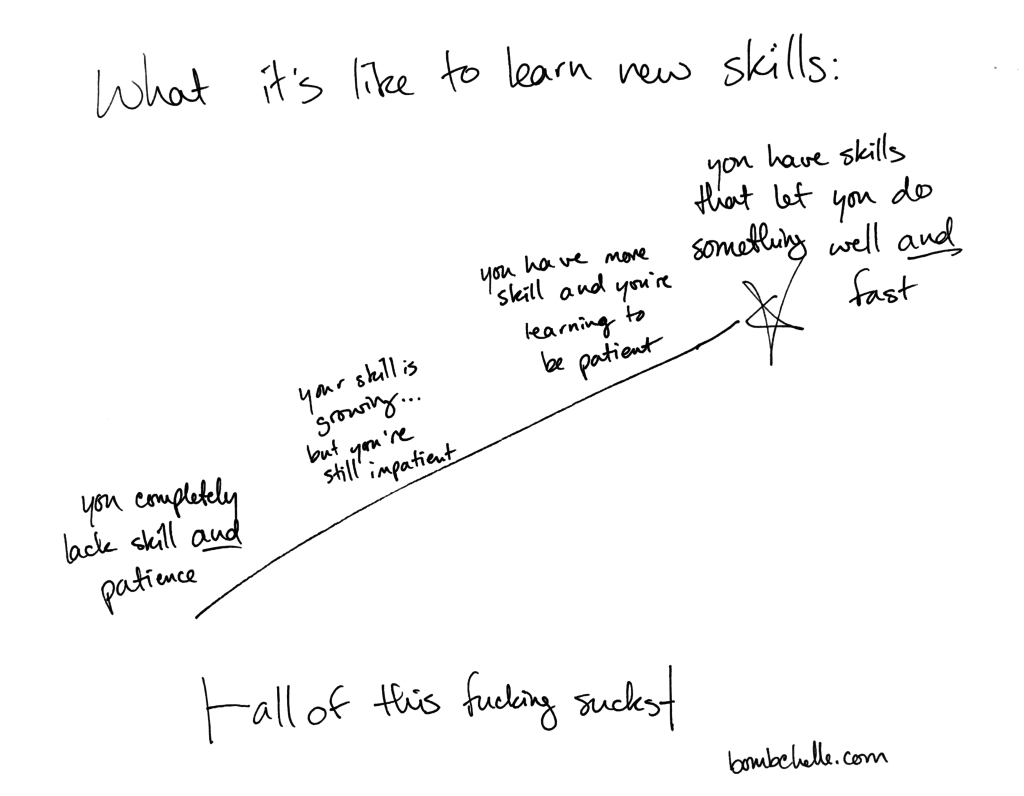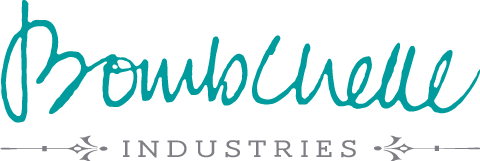
I’ve been working on becoming a better artist for a few years now, and oftentimes, it feels like an uphill battle through molasses, with cold snowy wind blowing in my face.
But sometimes, I have a moment of clarity:
Sometimes I feel like I'm never going to get better at drawing but then I have nice evidence to the contrary – these are two years apart: pic.twitter.com/1OeXnIH2My
— Miche (@skirmiche) May 14, 2017
Big difference, right? There’s two years of practice between those two drawings, and you can tell. Over those two years, I drew as much as I could — often every day, sometimes just once a week — and experimented with new mediums and styles.
However, I can also say that a lot of my growth comes down to one small change I made in my drawing practice, that made a huge difference:
Learning to spend more time on one thing.
Both drawings are the same size, 5” x 8”. The drawing on the left, I probably spent 30-60 minutes on. The one on the left took 2-4 hours.
“Wait a minute, is this another 10,000 hours riff?”
Nope — I don’t mean that you need to spend more time every day, or even more time in deliberate practice. (Although both of those things are also key.) What I mean is that you need to learn to spend more time on one project, using the skill that you’re learning.
There’s a learning trajectory with creative skills that looks a lot like this:

- When you first start, you have no skill and no patience. You spend an hour working on an article/painting/scarf/dress and then you get frustrated and throw it away or hide it, so you never have to look upon its hideous visage again.
- After some period of time and regular, deliberate practice, you have a small amount of skill…but still pretty much no patience. You’re improving, but it’s sooooo slowwww that it’s basically imperceptible (at least to you).
- Eventually, your patience starts to match your blossoming skills, and you start spending longer on individual projects/pieces.
- And then, and only then, do you start to reach the point where you can create something well and do so without spending as much time on it.
In my experience, it’s actually harder to hold on throughout this arc if you already have one skill at the “top” — especially if that one skill has been a constant for a good chunk of your life.
For me, I always want to compare whatever skill I’m working on, whether it’s drawing, jiu jitsu, learning German, you name it, to writing…but I’ve been writing for so long that literally nothing compares to it. I’m already at the top of the arc with writing, when I’m way over at the bottom of the hill with the new skill. Often, comparing these two skills makes me even more impatient and less likely to spend a long time on one project, even though it’s a fundamentally flawed comparison.
What you learn from spending more time on one thing:
You learn shortcuts.
We all want to get to the point where the creative work takes less time. The problem is, you can’t get there by continuing to spend an hour or less on a project and saying it’s done. Every time you spend a little longer working on something, you realize new things, like seeing a faster way to outline an article or that these two mediums blend together exceptionally well.
The only other way you’re going to learn those shortcuts is by talking to other people, taking classes, or reading/watching tutorials. Even then, you’ll still have to try it and experiment and see how it works when you do it.
You learn to push through the ugly middle.
Learning shortcuts is great, but this is the real gem. When you don’t spend enough time on any one project, you stop before you ever hit the ugly middle.
You know the ugly middle, right? That part of the project where you’re like “WELP I guess I better just burn everything to the ground because all of this is terrible and I am a fraud and I will never create anything worthwhile, it’s time for me to fulfill all the stereotypes about creatives and booze”? Yeah. That.
When I was just doing 10-15 minute sketch sprints every day, I was improving, but I also never really hit the ugly middle of a project. When you start working on a bigger or more involved scale, there is always an ugly middle, even if it exists more in your head than on the page. Spending longer on individual projects teaches you how to recognize — and then push through — the ugly middle.
A big part of the reason it’s easy to avoid spending a long time on a particular project is because it’s downright painful to spend so much time on something and have it still be far from perfect — as Ira Glass puts it,
Nobody tells people who are beginners — and I really wish somebody had told this to me — is that all of us who do creative work … we get into it because we have good taste. But it’s like there’s a gap, that for the first couple years that you’re making stuff, what you’re making isn’t so good. It’s not that great. It’s really not that great. It’s trying to be good, it has ambition to be good, but it’s not quite that good. But your taste — the thing that got you into the game — your taste is still killer, and your taste is good enough that you can tell that what you’re making is kind of a disappointment to you.
And I get it. It sucks.
But if you stick it out, I bet you’ll be surprised at the results.
Your homework: For one of your still-improving skills, spend twice as long as you normally would on one piece/project/whatever. Start doing that on a regular basis, without neglecting your regular practice. See what happens.
